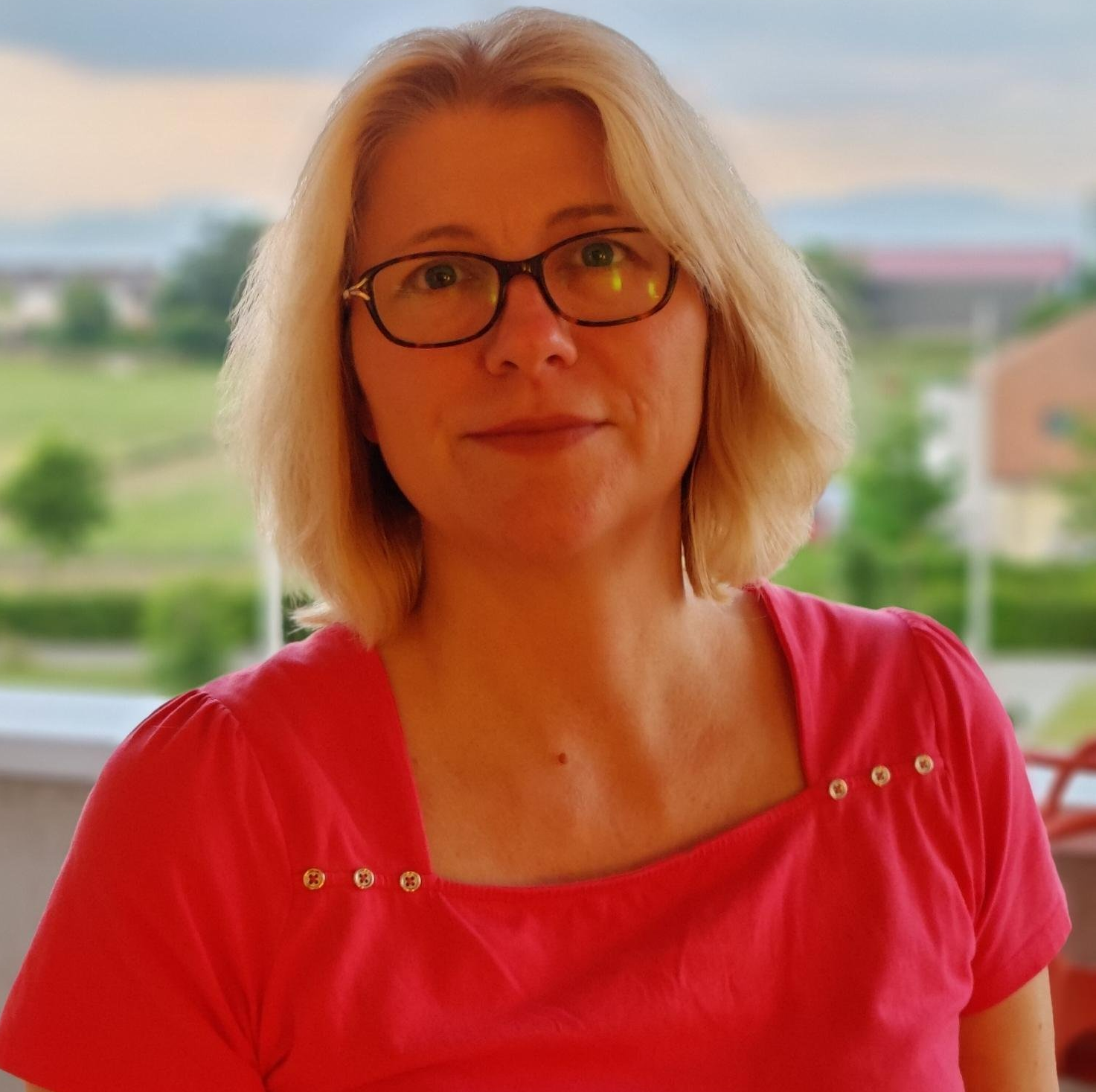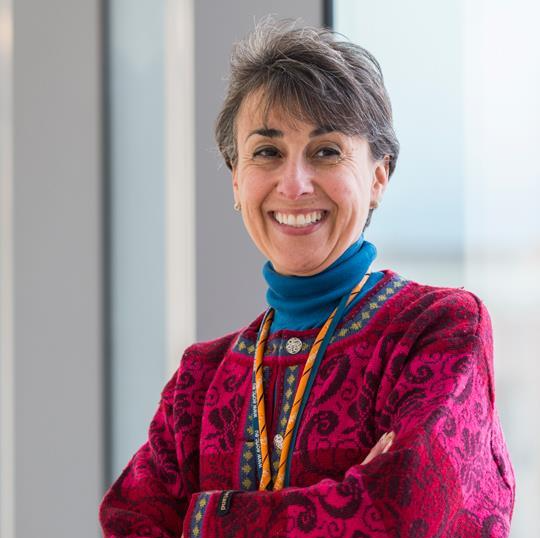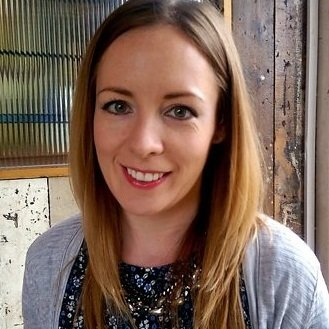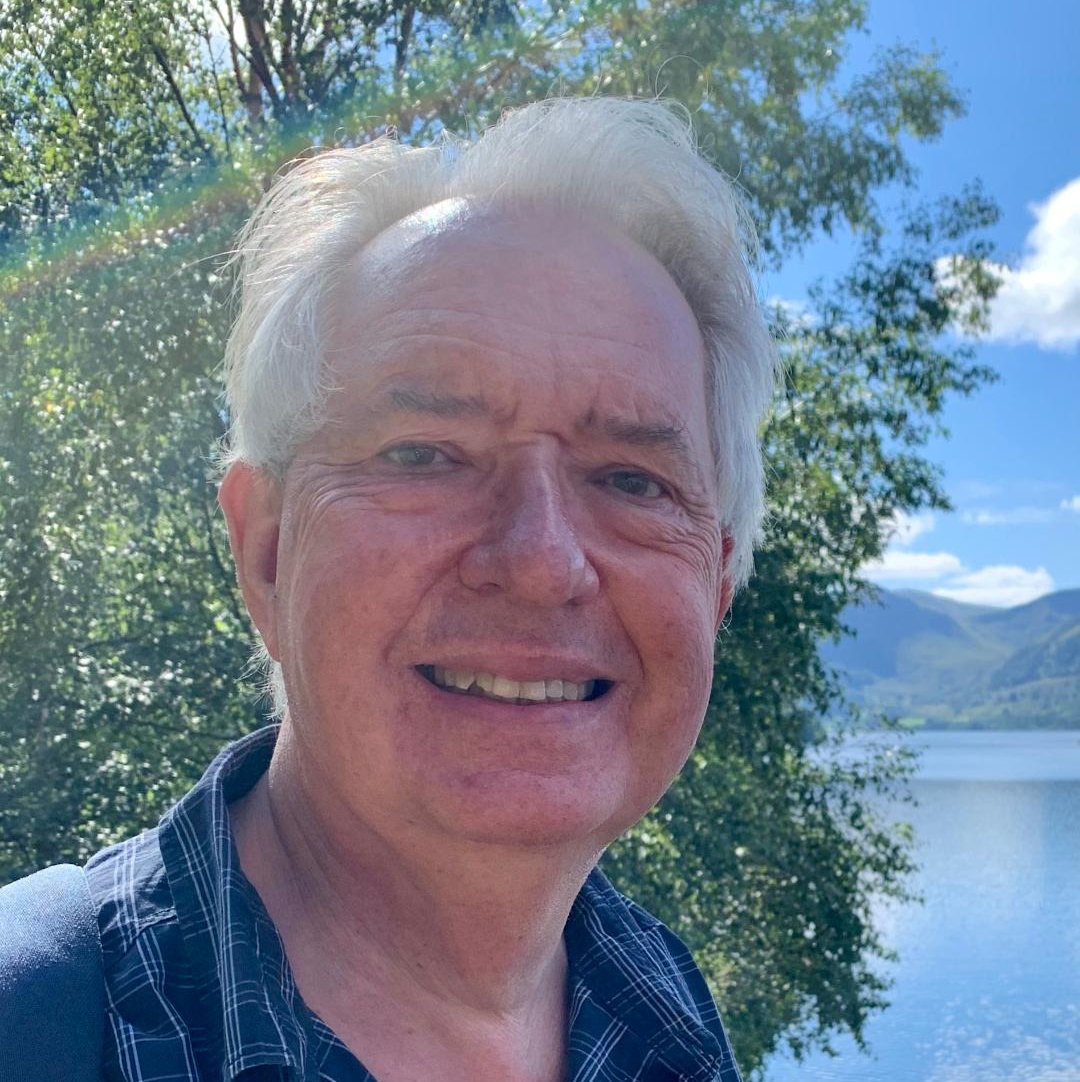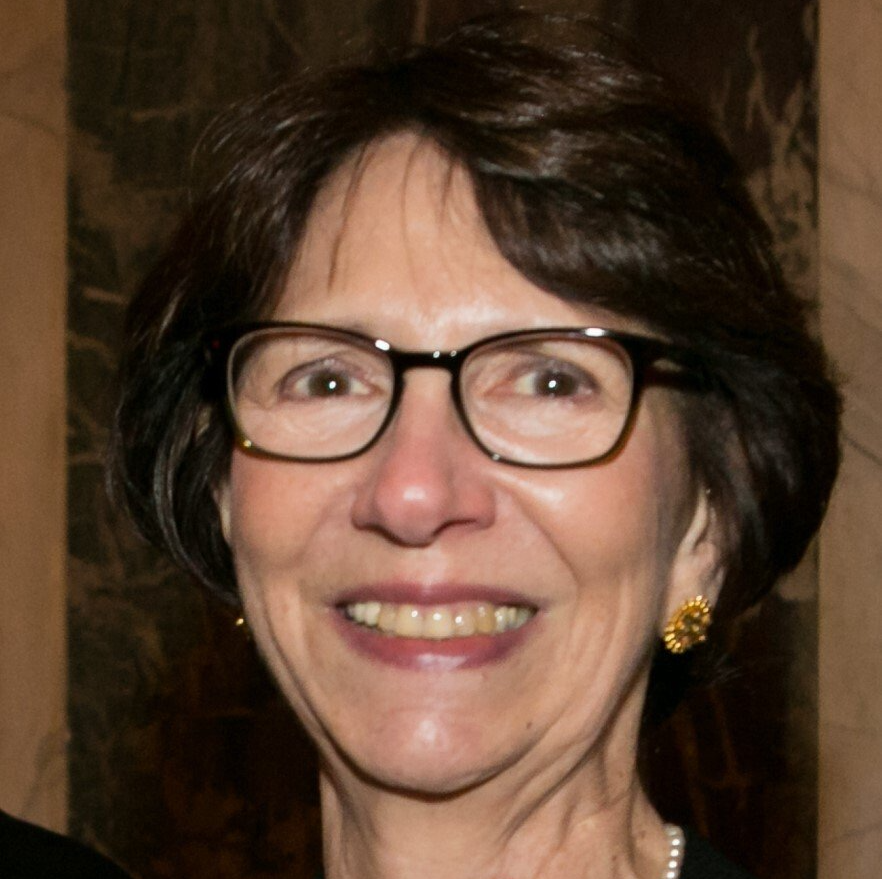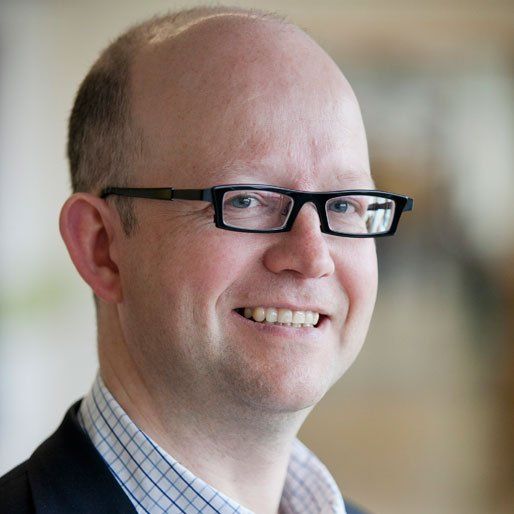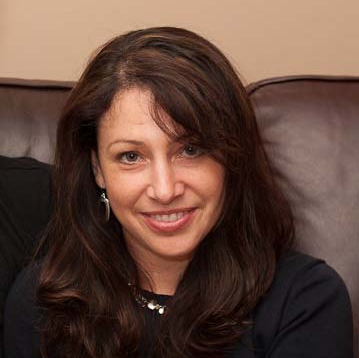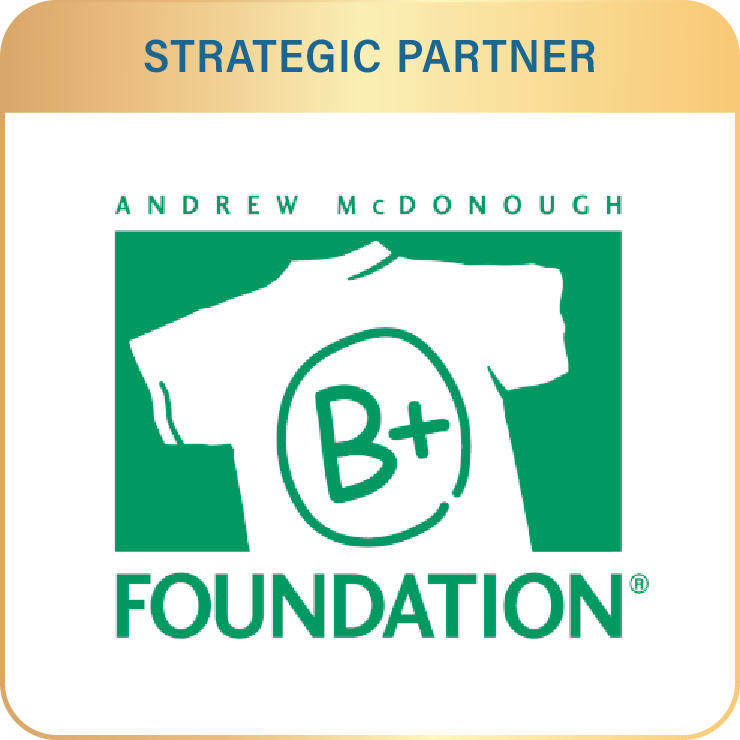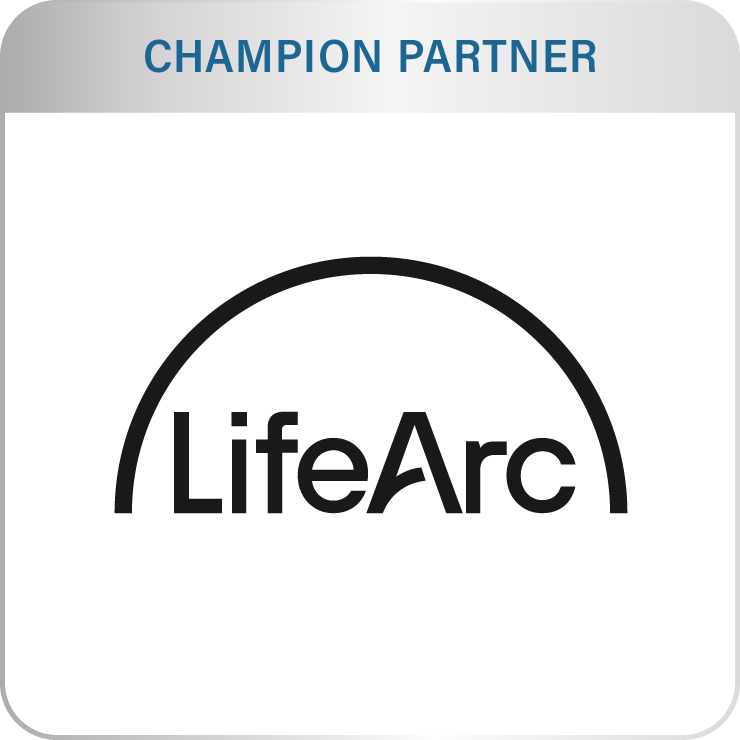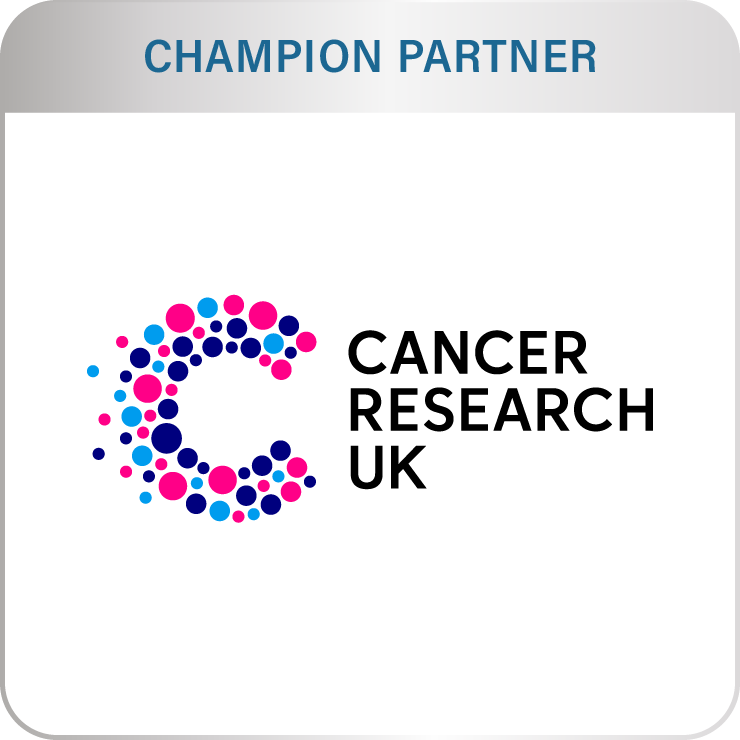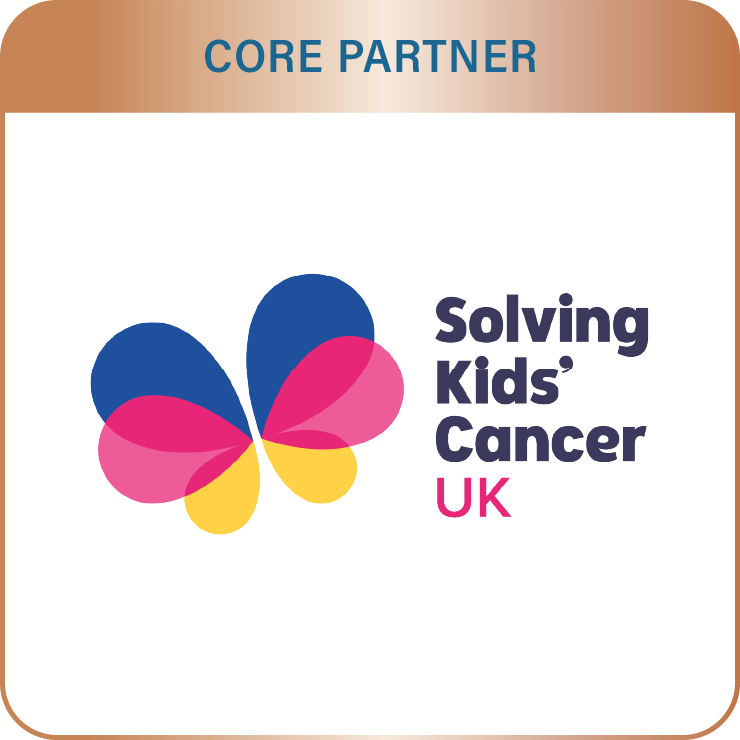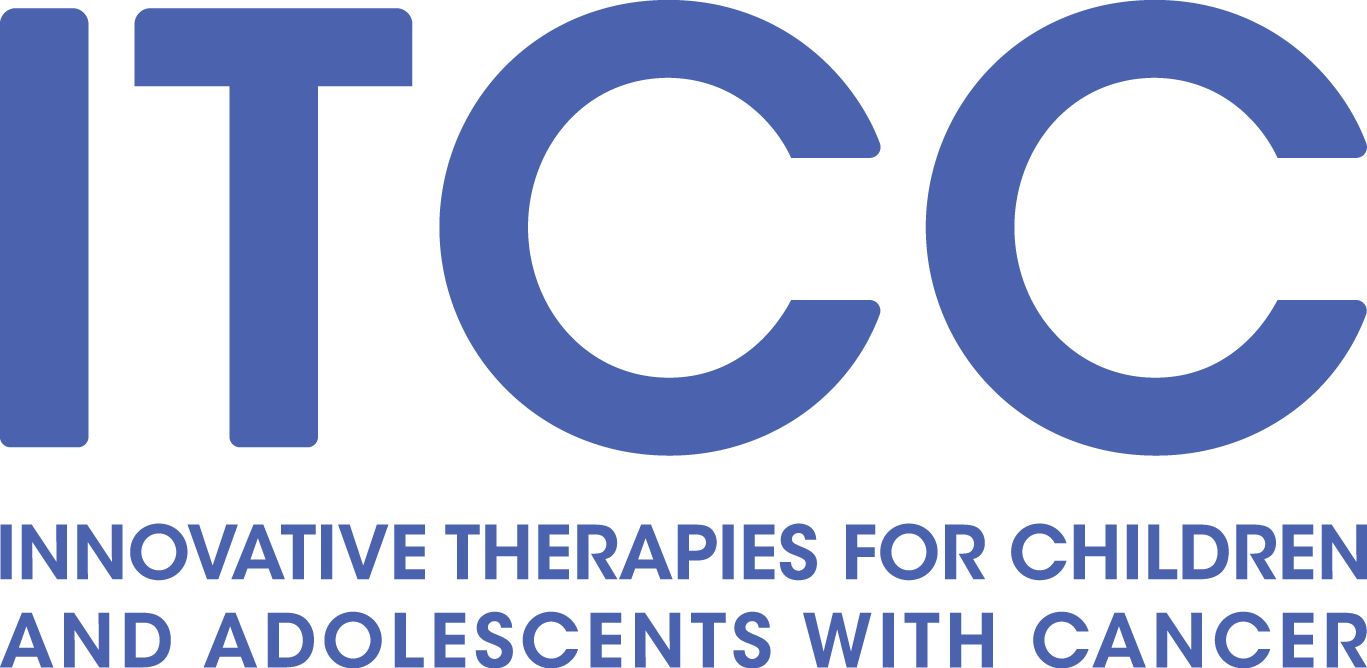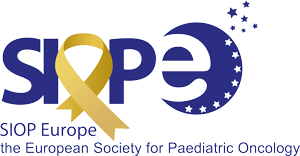TESTIMONIALS
Nicole Scobie
President
Zoé4life
“My son survived – why am I involved in research?
I am one of the lucky ones.
My son was four years old when the doctor brought us into a private room at the hospital and told us the lump in his abdomen was a 14cm cancer called Wilms Tumour. Despite the fact that Elliot was already at stage 4, with his lungs full of metastases, he survived.
He was cured because years ago, people got together and worked until they found a way to treat his cancer. Wilms tumour now has an over 90% cure rate. It’s a highly toxic course of treatment, with long term side effects in many survivors, but my son is an active 14-year-old today.
Many of the parents I work alongside as advocates have lost their child. They are committed to making a difference for other children: the ones diagnosed today, the ones of tomorrow.
But why, since my son survived, am I so committed to advancing research?
Elliot was in treatment for almost a year, alongside other children. I made good friends during those long days at the hospitals; friendships are forged in difficult moments that are unlike any in the outside world. I also made some of my closest friends through international parent networks, while their children were still in treatment, and we exchanged information and hope.
And while many of these friends have lost their child, mine survived.
So I don’t have the grief they do. I don’t have that pain they carry and hold tight within them, surviving every day, every moment, by taking one step at a time.
I am incredibly lucky, because theirs is a grief that is incomparable to anything else, that I can sense and understand, but not really feel.
But I do grieve. I am sad and angry. Just not for the same reasons.
I don’t grieve for the loss of a child.
I grieve for them. These moms and dads who have lost their children. My friends, who suffer, and will continue to suffer, even though they all bravely get up every morning and choose to make the best of the day and try to look for the sun shining.
While I may not feel the loss of a child, I know what it is to visit a little girl’s grave with her mom. To pick a few weeds from between the flowers, to straighten the candles and dust the light snow off the little teddy bear sitting there. I know what it is to talk to someone who’s child had the same cancer as Elliot and didn’t survive. I watch my friends stand up in meetings and speak in front of large audiences about the need to accelerate treatments because they don’t want other parents to go through what they did. They hold their grief in to be productive and professional.
All of us are brought together by a strong belief: we believe in ACCELERATE. We believe in getting all the right people in the room and trying to solve the big problems together.
So my answer to the question “why” is:
I don’t want to watch any more moms lose their child. I don’t want to hear any more dads talk about their son in the past tense.
I have to make a difference and I believe at ACCELERATE we can.”
Prof. Dr. Lia Gore, Children’s Hospital Colorado, Vice-chair COG
“I was most honored to join in the efforts of ACCELERATE – I learn something new with each interaction. It is a unique opportunity to share information, dig deep into evidence-based practices and address current issues in childhood cancer from all perspectives.
I truly believe that without multi-stakeholder, multi-disciplinary involvement, we will not make the advances against the diseases that we are all committing to eradicate. It is incumbent upon us to solve these vexing problems on behalf of the patients and families who need answers. Together with the involvement of the voices of all stakeholders, we will get that much closer, that much faster.”
Leona Knox, Head of Research Solving Kids’ Cancer UK
“My son Oscar was diagnosed with cancer at 3 years old, and he died two years later following extensive but unsuccessful and very toxic therapy. He was failed by the lack of treatment options available to him, as far too many children are.
So many challenges exist in drug development for children and adolescents with cancer, but they are not insurmountable. Children need us to urgently find solutions and the only real way to identify them is to get everyone around the table and work together. ACCELERATE provides a platform to do that in the most efficient and focused way. I’m really proud to be part of that.”
Andy Pearson, Paediatric Strategy Forum Oversight Committee Chair
“When I was Professor of Paediatric Oncology at the Royal Marsden Hospital and Institute of Cancer Research, I had the privilege to give the first presentation at the BDA Paediatric Oncology Workshop in December 2011. This multi-disciplinary workshop was the first step towards the formation of ACCELERATE. On my last slide of my talk entitled “The Needs for Innovative Therapies for Children and Adolescents with Cancer”, I concluded that for optimal future progress: – interaction between academia, pharmaceutical companies, regulatory agencies and patient advocates; efficient selection of drugs; paediatric drug development driven by science and un-met needs; efficient pre-clinical evaluation and well-designed trials using integrated networks were needed. I have had the honour of being involved in ACCELERATE since its creation. What progress has been made in the last nine years?
Before the creation of ACCELERATE Stakeholders were in “silos”, now ACCELERATE offers a unique opportunity for a multi-disciplinary discussion about advancing drug development for children and adolescents with cancer. ACCELERATE is unique due to the enthusiastic and dedicated involvement of all stakeholders as equal partners committed to making a change together. The four stakeholder groups share knowledge, come to a consensus, design and implement solutions together .To me this is the fundamental strength of ACCELERATE, which excites me so much.
I really like the modus operandi, that after discussion at the Annual Meeting, specific objectives for the next year are agreed and delivered. Working together the achievements of ACCELERATE have been extensive:-a mechanism of action approach to drug development for children with cancer has been progressively developed, there have been five Paediatric Strategy Forums, pioneering the efficient selection of targets and drugs and the inclusion of adolescents in appropriate adult clinical trials has been championed.
There remains challenges for ACCELERATE. Even greater global, initially trans-Atlantic and Australia, alignment of drug development processes is needed; the development of high priority drugs in children with cancer should be incentivised and industry and academia need to work even more closely in designing and planning early drug development.
ACCELERATE is a forum for all international stakeholders to work in partnership to improve and fast-track the way innovative drugs are selected, prioritised, evaluated and introduced into front-line therapy. A great deal has been achieved but there is much more to do and ACCELERATE needs the involvement of more people from all stakeholder groups. It is a great privilege to be involved in ACCELERATE.”
Susan Weiner, Patient Advocate at Children’s Cancer Cause
“Some parents, after losing a child to cancer, become patient advocates and engage skills from their prior lives to support progress in paediatric oncology research. For me, research training steered my subsequent life to try to affect the complexities of developing new cancer drugs for children. It was clear to me that improving children’s access to modern therapies depended on close scientific partnerships and not on market forces.
Patient advocates or “patient experts,” as the IMI prefers to call us, try to add value by learning about the research enterprise and how it affects the therapies available to our children. After years learning whatever I could about how cancer research works, Dr. Gilles Vassal invited me to an ACCELERATE conference.
I was immediately struck by ACCELERATE’s collaborative approach. ACCELERATE was engaging the expertise of all stakeholders – researchers, regulators, pharmaceutical representatives and patient advocates as full partners. It had a single aim: to hasten innovative approaches to new therapies for children. I knew this was where I wanted to direct my efforts.
ACCELERATE is now extending its collaborative approach internationally as an EU non-profit organization. Families understand that successful treatment of a child’s tumour can depend on clinical trials with drugs that target a particular tumour type; they often search for trials beyond national borders. Closer international collaboration is increasingly important to enrol enough of the right patients to evaluate a new targeted therapy. ACCELERATE is working to facilitate cross border clinical trials and ensuring that data are consistent to obtain valid conclusions about clinical trials. I understood why this research approach is essential and try to help ACCELERATE advance this goal.
ACCELERATE’s international work actively involves key U.S. regulators and researchers. I am honoured to serve as the U.S. patient/family advocate. To promote U.S. understanding of ACCELERATE, I helped arrange a webinar presentation for Dr. Vassal through CAC2 (Coalition Against Childhood Cancer), a large group of U.S. patient advocates. We were delighted that the U.S. Andrew McDonough B+ Foundation, a group motivated by the loss of a child, subsequently awarded ACCELERATE a generous grant.
It was exciting when the first U.S. Paediatric Strategy Forum (PSF) was held January 2020 with funding from Alex’s Lemonade Stand Foundation, founded by another family who lost a child. PSFs are exactly what I dreamed would be an ideal approach to advance paediatric drug development: stakeholders openly analysing a specific problem, deriving recommendations that are rapidly published.
ACCELERATE’s strategy is even more important with recent changes in U.S. regulations and anticipated revisions of EU regulations. Patient advocates were critical to changing U.S. law to require companies to evaluate the paediatric relevance of new cancer drugs being developed for adults. As novel therapeutic options emerge, PSFs offer a trusted, unbiased setting to help companies, regulators and researchers determine the best new treatments for children. ACCELERATE plans to hold PSFs in the U.S. and Europe on alternate years. In these upcoming scientific discussions, patient advocates will offer suggestions on real world implications, operational efficiencies, and public and private funding opportunities. In the end, our partnership serves as a constant reminder of why we all do this work.”
Koen Norga, Chair of PDCO at the European Medicines Agency
“The legislative initiatives in the US and EU at the dawn of the new millennium profoundly changed the context of medicines development for children. In the field of paediatric oncology dramatic progress had so far been made exclusively by academic groups, without support from industry. With the advent of innovative anti-cancer medicines for adults, the Paediatric Regulation now offered opportunities for industry to engage also in paediatric oncology and bring innovative products to children with cancer. With the enthusiastic support of patients and parents, industry and academia started to collaborate, initially reluctantly. ACCELERATE was established at that time as a unique forum that brought all stakeholders together. Despite the “loopholes” in the law -leaving oncology to some extent behind other therapeutic areas- ACCELERATE managed to provide leverage for true multi-stakeholder collaboration. It took some time to build mutual trust, but step by step real progress was made, and the traditional parallel universes of academic research and commercial drug development were integrated, each partner bringing their own strengths and capabilities to the table to ensure increasingly tailored and timely developments. Its mission aligns thus very well with the purpose of the EU Paediatric Regulation. As regulator with the status of “active observer” it has been very exciting to be allowed to witness this initiative from the inside as it was taking shape. The Strategy Forums have been particularly helpful for our work. Their impact on regulatory procedures has been tangible and there is now interest to expand this paradigm beyond oncology.
The challenge for ACCELERATE will be to maintain the momentum for this important collaboration in a rapidly changing global socio-economic context, where competing priorities may emerge. It is clear that the most important challenges are those we share and can better face together. The best way to continue to make real progress will be for each stakeholder to maintain its commitment to authentic dialogue and true collaboration. Unsurprisingly, colleagues have over recent years changed seats at the table, moving between academia, industry, advocacy and regulator roles. This is further enhancing mutual understanding and it brings the best chance for return on investment for all, not the least for patients.”
Elly Barry, MD, MMSc
VP Clinical Development
Day One Biopharmaceuticals
“I am a pediatric oncologist who has been working in the pharmaceutical industry for over 12 years. Although I no longer take care of patients in the clinic, paediatric cancer patients have never been far from my heart and mind. During my years in industry, I been able to contribute to paediatric cancer drug development as a result of paediatric research regulations enacted within the last decade. While regulations and incentives have helped to spur industry to study new medicines in children, there are many challenges that remain for paediatric cancer. The relative rarity of childhood cancers, the complex global regulatory environment, and the fact that cancer drug development is primarily driven by the market potential for “adult” type cancers, all create challenges in conducting speedy, efficient, and effective global trials that provide timely to new therapies for paediatric cancer patients.
The spirit of collaboration has always been central to paediatric cancer drug development, as evidenced by the number of academic research groups and consortia that have made tremendous progress in advancing therapies and improving outcomes for paediatric cancers. ACCELERATE builds on this spirit of collaboration, and multiplies it by joining forces and energy across all relevant stakeholders: academic researchers/physicians, industry and regulatory representatives, and patient advocates. I joined ACCELERATE 3 years ago, and it has been an incredibly enriching and rewarding experience, both personally and professionally.
By bringing together all four groups of stakeholders, ACCELERATE breaks the traditional and silos that have existed, encouraging open and honest communication, but most importantly, encouraging creative and collaborative solutions to overcome the barriers that slow down drug development and access for paediatric cancer patients. The power of this multi-stakeholder forum, and the impact that ACCELERATE can make on a global scale, are already evident. For example, Paediatric Strategy Forums are helping to shape the dialogue around the prioritization of drugs and resources for paediatric cancer patients; the FAIR Trials Initiative is encouraging inclusion of AYA participants in adult trials, and is now supported by regulatory guidance.
By harnessing collective engagement and collaboration among stakeholders who share a common goal of advancing treatments for childhood cancers, ACCELERATE makes us stronger together. I am humbled to work alongside my fellow members of the ACCELERATE Steering Committee, who I now consider as colleagues, partners, and friends in this endeavour. Most all, I am encouraged and hopeful that this collaboration is bringing real progress to the most important stakeholders of all: patients.”

